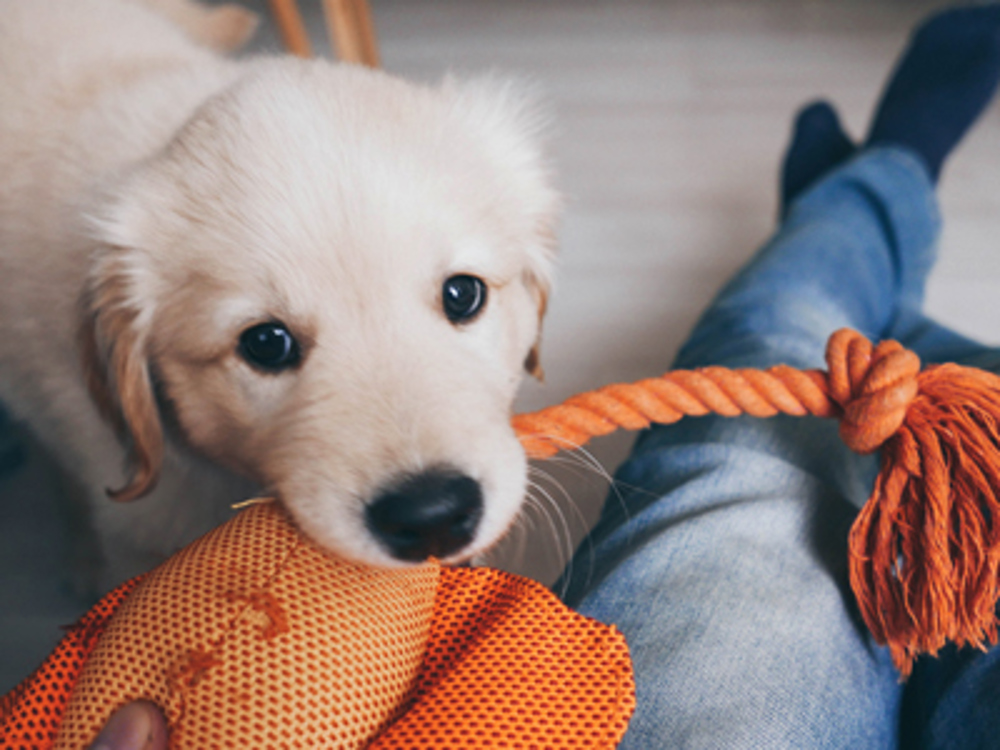
It can come as a shock when suddenly your lovely, cuddly puppy turns into a teenager!
This stage comes anywhere between 4 and 8 months and can last anything from a few days to a couple of months. Your puppy will begin to wander a little further from you – and instead of coming to you as they have been, they give a good impression of not having heard you. They may even be difficult to catch or run away from you.
Tips for dealing with the "terrible teens"
If this becomes a problem, avoid complete off-lead exercise but keep them on a long line that they can trail behind them. Retractable leads are not recommended, as they do not give you enough control and can cause injuries if misused. This way, your dog can still get plenty of experience and socialise freely with other dogs, but you can prevent them from ignoring you when you call.
If you use the lead and give plenty of rewards when your pup comes to you, this period should not last long. However, if your dog learns that they can ignore you, it may continue for far longer – or even become a habit.
Consider joining a dog training class to help with further training, and to give you support and advice with any problems. Use Find a Club to discover a local dog training class associated with The Kennel Club Good Citizen Dog Training scheme, or search our database of The Kennel Club Accredited Instructors.
Your puppy's social skills can start to regress
This period happens anywhere between 6 and 14 months old. Your young dog can start to behave fearfully to things and people that they have previously been happily interacting with. This period coincides with the onset of sexual maturity and the surge of hormones that this brings.
As soon as you notice these fear responses starting, revisit the steps you took to socialise your puppy at the start – aiming to give them plenty of positive experiences with everything around them using treats, play and fun to overcome their fears.
Adult dogs
Having had the best possible upbringing, your adult dog should now have all the skills necessary to be a model canine citizen and, of course, a much loved part of the family. Don’t forget though – use it or lose it! Keep your dog's social skills well exercised by:
- ensuring they get to mix with other dogs
- going to training classes
- giving them the chance to socialise in a wide variety of situations
- visiting exciting places
